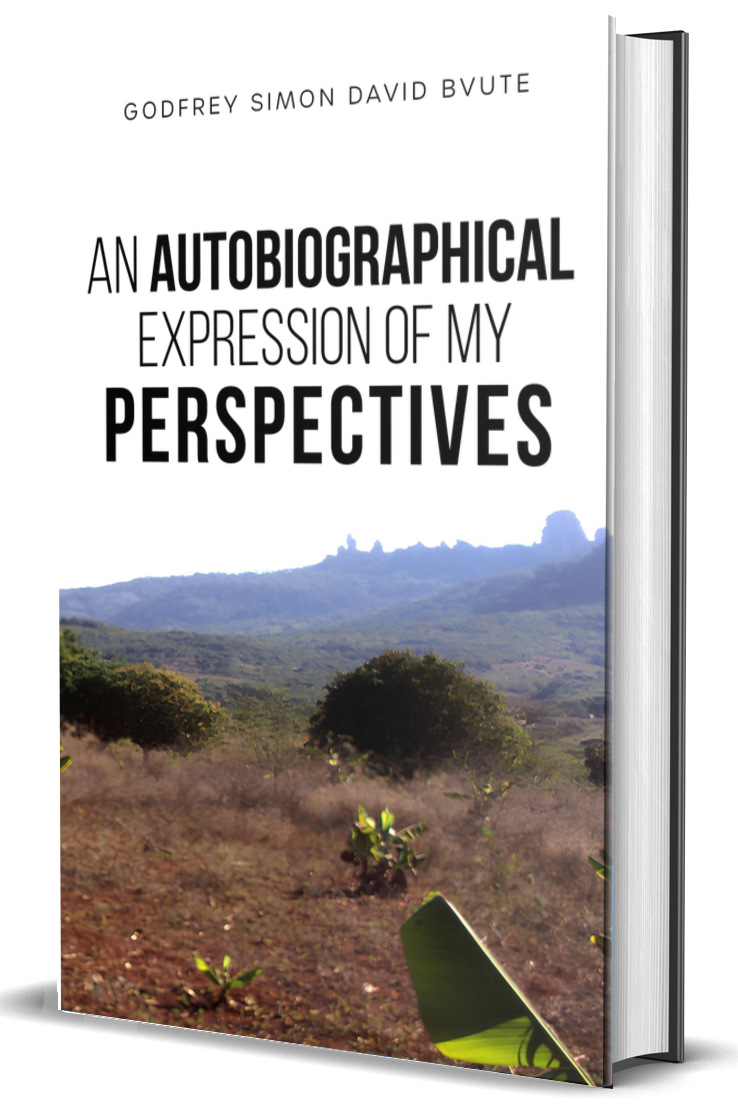Inspired by An Autobiographical Expression of My Perspectives by Godfrey S.D. Bvute
Traditions can be both the glue that holds societies together—and the battlegrounds where modernity and heritage collide.
In An Autobiographical Expression of My Perspectives, Godfrey Simon David Bvute explores these tensions through the lens of personal experience. His reflections on traditional marriage customs, gender roles, and family expectations paint a portrait of Zimbabwean life in transformation—one that many readers will find both familiar and thought-provoking.

Bvute’s life intersects with several generations of cultural practice. His parents lived a “till-death-do-us-part” model of marriage rooted in love, respect, and religious tradition. His extended family upheld the values of communal decision-making, with tetes (aunts) and uncles playing essential roles in matchmaking and marital support. These customs were not just symbolic—they were protective, ensuring compatibility and family cohesion.
As Bvute notes, “Tetes were taken as good assessors of character,” and their involvement was crucial in pre-marriage introductions and ceremonies. The vetting process wasn’t just about the bride and groom—it was a community act aimed at sustaining long-term unity.
Yet the author does not shy away from admitting that modern challenges have reshaped these traditions. His own relationships included heartbreak, cultural clashes, and even a violent partner who misused state authority. His marriage to his late wife, Tiwirayi, introduced him to Zezuru customs, such as the presentation of a chinu (clay pot of symbolic oil) and expectations around bridal purity—practices steeped in meaning, yet often misaligned with urban life and evolving gender dynamics.
In these stories, Bvute gently raises a difficult question: Can we preserve the essence of our traditions while making space for change?
He does not offer an easy answer, but his reflections point toward a balanced path. For instance, although he eventually entered a customary marriage with his current wife Loveness, they later sealed their union through civil marriage. In doing so, he honored both cultural practice and modern legal recognition—a blending of old and new.
Gender roles are another area where Bvute’s story becomes a mirror for societal transformation. Raised in a family where his mother trained all children—boys and girls alike—in household chores, he now sees that early equality as a key to his self-reliance and parenting success. Rather than being restricted by “traditional” views of masculinity, he was liberated by a practical and nurturing upbringing.
What stands out in Bvute’s writing is not a rigid adherence to cultural dogma, but a call for continuity that respects both heritage and humanity. Traditions, he argues, should uplift, not oppress. They should evolve with time—not erode dignity.
This nuanced perspective makes his book a valuable read in today’s Africa, where debates over cultural identity, women’s rights, and generational divides are at the forefront of public discourse.
In the end, Bvute’s life story is not just a memoir—it’s a dialogue. It invites readers to reflect on their own values, challenge outdated norms, and preserve the essence of community without rejecting the reality of change.
If you’re looking for a book that bridges the past and the present while honoring African wisdom and questioning its rigidities, An Autobiographical Expression of My Perspectives is one to explore.